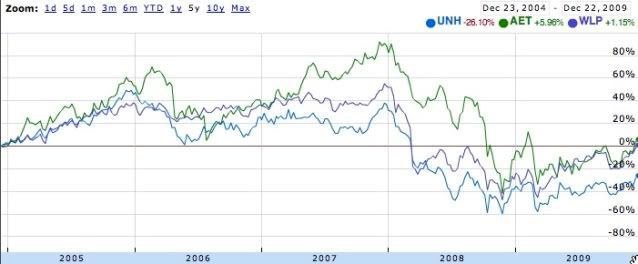Health Care: Dear Senator Reid
Dear Senator Reid:
We write to thank you again for your leadership in the Senate health reform deliberations. We greatly appreciate the important elements of fiscal sustainability that are included in the Managerís Amendment.
Among the features that we believe to be critical to a fiscally responsible approach to health reform is a more effective independent Medicare advisory body. The Managerís Amendment has strengthened the role of the body, now called the Independent Payment Advisory Board. The Amendment gives the Board the authority to produce annual reports beginning in 2014 and to report on privately financed medical care as well as care financed by Medicare. In addition, its recommendations will receive fast-track consideration under a broader set of circumstances than under the Senate Leadership Bill. These are important steps toward assuring that health care reform will significantly reduce health care inflation in both the public and private sectors.
Another feature that has been strengthened is the commitment to delivery system change. The Managerís Amendment contains several provisions that should stimulate the development of innovative approaches to payment for care. These approaches hold the promise of improving quality and lowering the costs of care. Specifically, the Managerís Amendment includes an expansion of Medicare pilot programs and provisions for bundled payments for a larger set of conditions. These aspects of the proposed legislation make it far more likely that health care providers will have the tools and incentives to deliver better health outcomes.
As a nation, we will need to do more in the coming decade to promote the efficiency and quality of health care. The Managerís Amendment includes important features that will move our nationís health care forward while helping to control health expenditure growth. We are grateful for your ongoing efforts and the improvements in the Managerís amendment. We urge expeditious enactment of your reform legislation.
Sincerely yours,
Dr. Henry Aaron, The Brookings Institution
Dr. Stuart Altman, Brandeis University
Dr. Kenneth Arrow, Stanford University, Nobel Laureate in Economics
Dr. Gary Burtless, The Brookings Institution
Dr. David Cutler, Harvard University
Dr. Patricia Danzon, University of Pennsylvania
Dr. Angus Deaton, Princeton University
Dr. Brad DeLong, University of California, Berkeley
Dr. Peter Diamond, Massachusetts Institute of Technology
Dr. Victor Fuchs, Stanford University
Dr. Alan M. Garber, Stanford University
Dr. Dana Goldman, University of Southern California
Dr. Jonathan Gruber, Massachusetts Institute of Technology
Dr. Daniel McFadden, University of California, Berkeley, Nobel Laureate in Economics
Dr. David Meltzer, University of Chicago
Dr. Joseph Newhouse, Harvard University
Dr. Uwe Reinhardt, Princeton University
Dr. Alice Rivlin, The Brookings Institution
Dr. Meredith Rosenthal, Harvard University
Dr. Isabel Sawhill, The Brookings Institution
Dr. William Sharpe, Stanford University, Nobel Laureate in Economics
Dr. John Shoven, Stanford University
Dr. Robert M. Solow, Massachusetts Institute of Technology, Nobel Laureate in Economics
Dr. Laura DíAndrea Tyson, University of California, Berkeley

 Isn't it enough that we're having to fight off "death panels?" Seems like some on the Left aren't bothering to read the bill either.
Isn't it enough that we're having to fight off "death panels?" Seems like some on the Left aren't bothering to read the bill either.




 :
:

